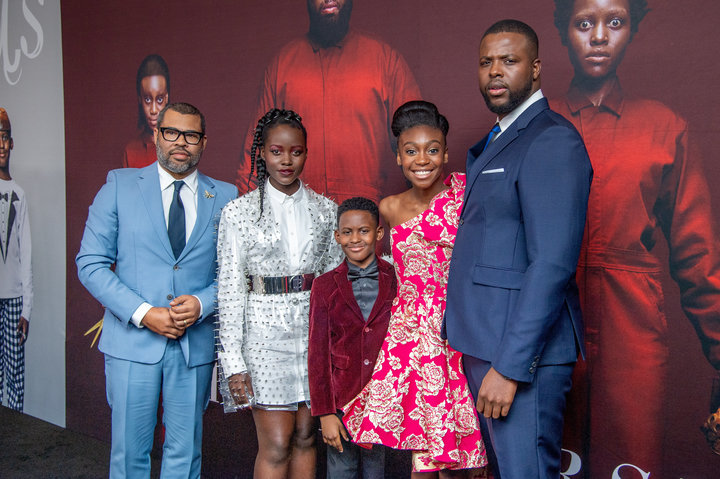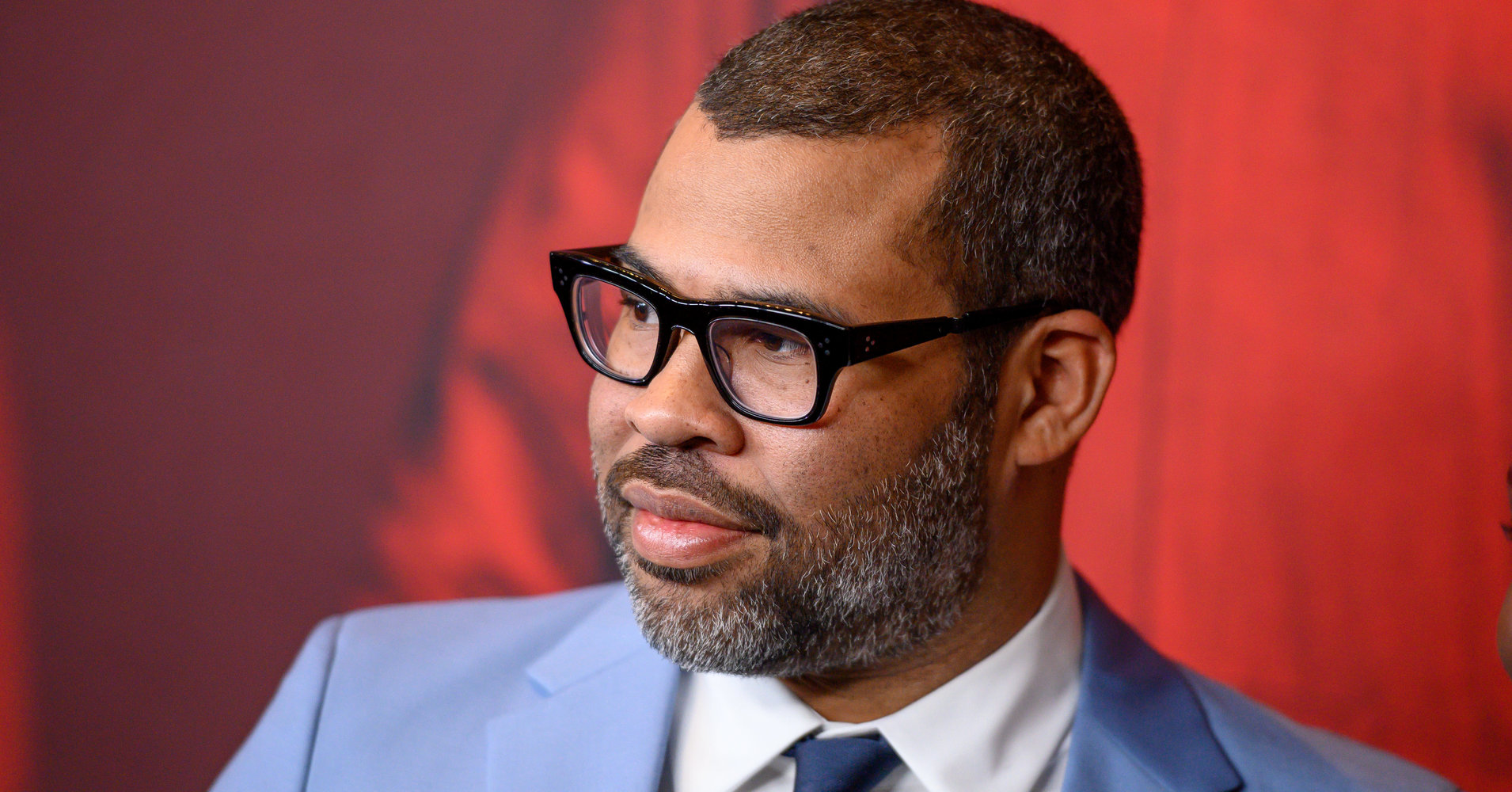[ad_1]
Jordan Peele’s work sits on your chest and stays there for a while after you’ve left the theater. This was true of his Academy Award-winning “Get Out,” but maybe even more so with his sophomore follow-up, “Us.”
Don’t get it confused. “Us” is not “Get Out.” The latter reminded audiences of the ever-present danger of liberal white racism, while the new film shines a mirror up to ― well ― us. All of us. In a tweet the Sunday before its nationwide release, Peele clarified that “Us” is “a horror film.” It’s not for the faint of heart. It’s very much a social thriller, but it also scares the shit out of you.
The film, which premieres March 22, stars Lupita Nyong’o, Winston Duke, Shahadi Wright Joseph and Evan Alex. It follows a family as they visit their vacation home near where Nyong’o’s character, Adelaide Wilson, first met her doppelgänger, Red, as a child. She reunites with Red and finds that her entire family ― and everyone else ― has an underworld twin. They are forced to literally face themselves. It’s a mindfuck, y’all.
“The human race is born of much duality,” Peele told HuffPost in a phone interview. “Our negative aspects, we tend to not face and deal with because they’re unpleasant, but that includes our fears and our guilt.”
In conversation with Tananarive Due, a UCLA lecturer and the executive producer of the documentary “Horror Noire,” Peele revealed the idea for this film was based on his own fear that stemmed from a daydream.
“I used to go down the subway in New York, go underneath the underpass to go to the other side of the subway late at night, and nobody else is on the platform, and look across and imagine, ‘What if I saw myself going in where I had just gone?’ And that shuddered me to my core.”
Inspired by America, he said at the South by Southwest premiere, “Us” explores what happens when the enemy is closer than you think. The plot makes you paranoid and introspective at the same time. This country will do that to you anyway.
“I think that this movie applies in any version of ‘us versus them,’” Peele told HuffPost. “Whether we’re talking on the level of your family versus the family across the street, your race versus another race, your socioeconomic class versus another, or the idea of us being Americans against the rest of the world. I think we are conditioned to point the finger at ‘them.’ This movie says we need to point the finger at ourselves, at us. We are often our own worst enemy. Whatever facets that we’re talking about.”
As intended, “Us” takes on different meanings from different angles. It mirrors a duality Peele knows very well. With his roots in comedy, some folks scratched their heads when they heard one half of “Key & Peele” was taking his talents to the horror genre. But both of his big-screen directorial efforts masterfully intertwine comedy with gore and suspense. It’s all very intentional.
What wasn’t intentional, the filmmaker said, is the racial commentary in and surrounding the film. That was more intuitive. Casting a dark-skinned family to star in a blockbuster horror, repurposing a hood classic like Luniz’s “I Got 5 on It” as a haunting anthem, and prioritizing black journalists, celebrities and influencers at the first screenings are all unheard of. Yet here we are. Add that he gave Howard University a nod and hosted a screening with the cast at the historically black institution.
“Us” may not be a black film, but it’s black as hell in essence.

Top that off with the fact Peele cast Nyong’o, whom he praises as “one of the greatest actors of our time,” in her first leading role. And her performance is perfectly chilling. “Us” would be a totally different film without the Academy Award winner’s performance, which should be revered as nothing short of iconic.
“I love the fact that we get to take a singular performer and see two of her in the film,” Peele told HuffPost. “On top of that, two actors can commit to a role, and to the range of emotions, that Lupita can. That and the choice to make [her the lead] really wasn’t a choice for me.”
It still baffles Peele that although Hollywood has made progress, it has neglected to open up the right opportunity for Nyong’o to play a leading lady. And that still says a lot about how far we still have to go.
“[She’s] a complete star, someone who has proven herself time and time again,” he said. “This was her first ― granted I’m sure she’s been offered and turned a lot down ― but the truth stands is that we’re still at the beginning of a coming to terms of representation in this industry.”
But Peele, who is also working on a “Twilight Zone” reboot and “Candyman 2,” is at a point where he recognizes the power he wields in the fight for true inclusion.
“I’m glad that I’m at a point where they will let me put this black family in a horror movie,” he said. “That to me is an opportunity … that just helps me create something that’s out of the box.”
Thus far, black stories, intentional or not, have been at the center of Peele’s films. The same films that score higher than 95 percent on Rotten Tomatoes before the world gets to see them challenge the way we talk about issues affecting us and leave us running to watch them over and over again to see what we missed the first few times.
While we’re watching Jordan Peele’s star rise, he makes sure that we know he sees us.
[ad_2]
Source link

